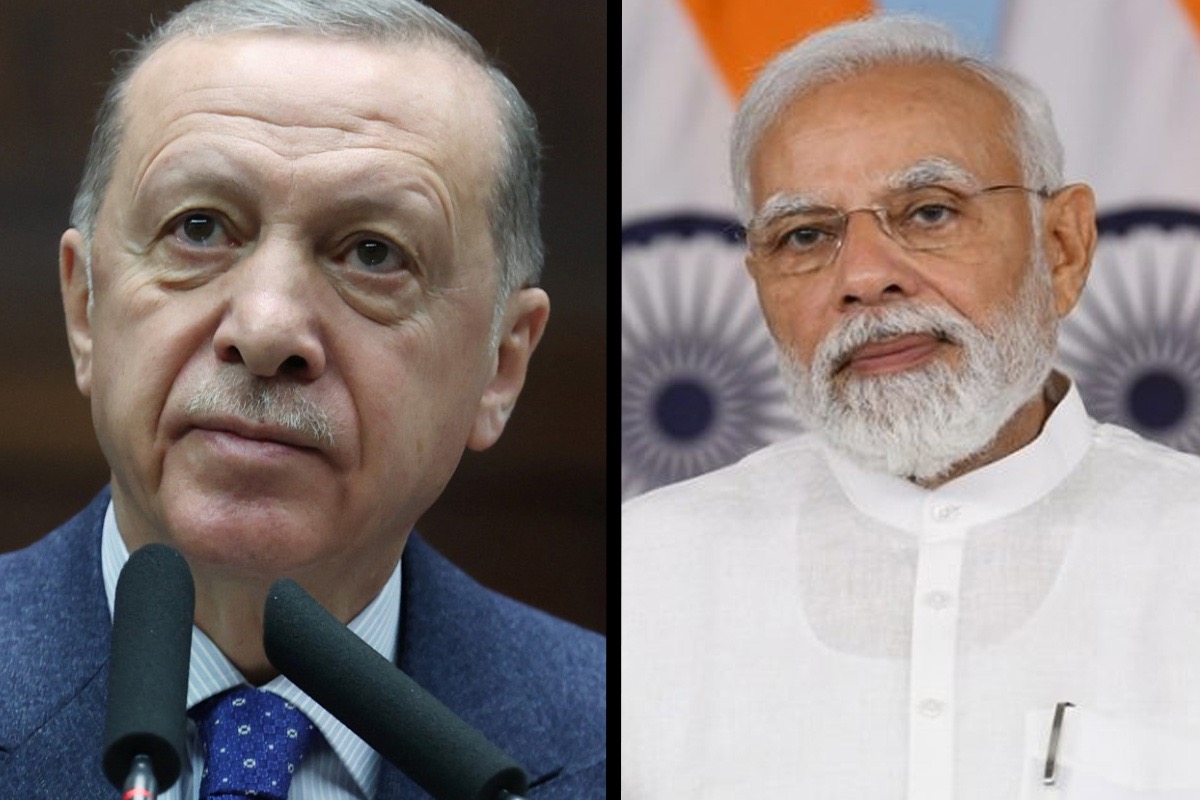India is one of the first countries to promptly respond to the monumental crisis that has struck Turkey as the country faced three consecutive devastating earthquakes. By early Tuesday, India sent NDRF Search and Rescue Teams, specially trained dog squads, medical supplies, drilling machines, and other equipment on the directions of Prime Minister Narendra Modi.
India’s swift response has given rise to a few disgruntled voices. One opinion is that Turkey doesn’t deserve such generosity owing to the country’s rather cold approach toward India, just like Pakistan is not eligible for India’s benevolence under any circumstance. To mention Turkey and Pakistan in the same breath, vis-a-vis India would be a diplomatic fallacy. In geo-politics, countries are arranged on a spectrum and the degree of friendship and closeness is graded. Pakistan and Turkey are poles apart and the parameters of India’s response to humanitarian crisis in these countries ought to be different.
Pakistan for all practical purposes will always remain an enemy state given that we have fought four wars with them and the country has sponsored cross-border terrorism bleeding India, particularly Jammu and Kashmir, for four decades. With Turkey our frayed relationship can be at best attributed to differences that both countries are working towards resolving.
There is no denying of the fact that India and Turkey relationship have been on a downward spiral because of Ankara raising the issue of abrogation of Article 370 on various forums while taking a pro-Pakistan position that the Kashmir issue must be resolved under the UN Security Council resolution of the 1950s.
President Erdogan first raked up the issue at the United Nations General Assembly (UNGA) in September 2019. Since then, he has repeatedly talked about the Kashmir issue in the UNGA every year.
Erdogan’s actions invited India’s strong reactions. Prime Minister Modi countered by holding meetings with the president of Cyprus and the Prime Ministers of Armenia and Greece, Turkey’s traditional rivals on the sidelines of the UN’s annual meetings. Modi later canceled his planned visit to Turkey in October 2019 and terminated a $2.3 billion naval deal with a Turkish defence company.
India also cut its other defence exports to Turkey, which included dual-use weaponry such as explosives and detonators. India also significantly reduced its imports from Turkey.
In addition, India entered into a defence agreement worth $40 million with Armenia, in the region, which includes four SWATHI weapon-locating radars developed by the Defence Research and Development Organisation (DRDO).
The message from India was clear. India reminded Erdogan that unlike Turkey, which invaded and occupied part of the sovereign nation of Cyprus in 1974, New Delhi had not undertaken any such measures in Kashmir, and that India will not hesitate to take tough calls to protect its political and economic interests.
These measures produced the desired results. Erdogan recalibrated his position on Kashmir and took a neutral stand in his 2022 UNGA address.
Turkey is trying to normalise relations with countries like Israel, Saudi Arabia, and the UAE. Turkey re-established diplomatic relations with Israel after more than a decade of tensions. Erdogan has also reached out to other adversaries, including Egypt and Armenia, to mend fences. India has excellent relations with all these countries – the UAE, Saudi Arabia, Israel, and Egypt, and Erdogan seems to have taken note of it.
India has assumed the Chairmanship of the Shanghai Cooperation Organisation (SCO) and the Presidency of the highly influential G-20. Turkey’s inflation has hit high and is undergoing a huge economic crisis. An anti-India position will not help Ankara in these circumstances and Erdogan knows this.
Diplomatic manoeuvrings notwithstanding, India’s response to humanitarian crisis in any part of the world has been guided by a sound moral code. Providing humanitarian aid in times of crisis and refuge to the persecuted is a natural response that is compatible with our history of tolerance and generosity.
Be it Jews fleeing Nazi atrocities, Armenian Christians who witnessed the Ottoman brutality or Afghan Muslims fleeing Taliban, India’s doors were always open for the persecuted.
India currently hosts at least 15,806 Afghan refugees within its borders, including Afghan Hindus, Sikhs, Muslims and Christians.
Recently during the Coronavirus pandemic, India was the first to dispatch humanitarian aid to neighbouring countries including Bangladesh, Nepal, Bhutan, Afghanistan, Maldives, Seychelles & Mauritius. India has also played a leading role in helping Sri Lanka rebuild its economy. “Neighbour first” has been a key feature of Modi’s diplomacy.
Keeping these factors in mind, sending relief to Turkey at this crucial hour must be welcomed.










